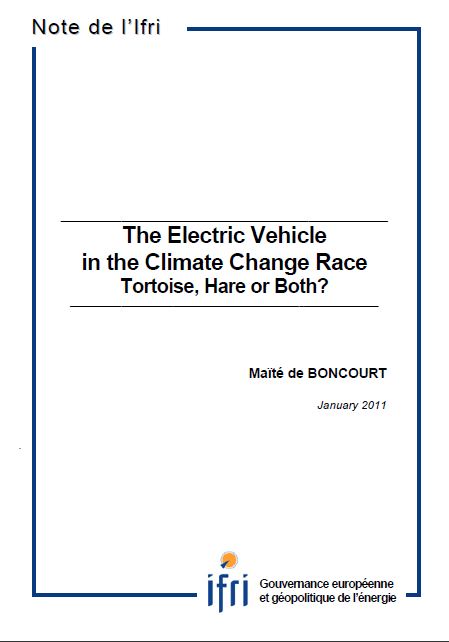The Electric Vehicle in the Climate Change Race: Tortoise, Hare or Both?

Europe is seeking ways to decrease the growing negative impact of passenger cars on climate, currently responsible for up to 12% of total EU CO2 emissions. After biofuels in the nineties and hydrogen in 2000, the new answer to climate change appears to be electric. But contrary to many marketing messages, electric cars are not zero emissions cars. They will not necessarily contribute to actual CO2 emission reductions before 2020 and even then, not in every country.
In EU Member States where the power sector is based on coal, they could actually make things worse. In others, bad management of the charging function could increase peak load requirements and cause investments in fossil-fuel-fired power plants. Finally, electric vehicles and related costs are very high. Not only does this cast doubts on the extent and timing of their eventual market breakthrough, but it may also mean that their CO2 tone abatement cost is high.
Nonetheless, for the longer term, CO2 emissions from conventional vehicles can only be reduced to a certain extent whereas the potential for electric vehicles plugged into a decarbonised electricity grid approaches zero. If electric cars are to help to reduce CO2 emissions significantly in the future, Europe needs to start now to develop this promising mitigation tool. There is in theory almost no constraint on the electric vehicle becoming a “zero emission vehicle”, while conventional car will always have to burn fuel.

Available in:
Regions and themes
ISBN / ISSN
Share
Download the full analysis
This page contains only a summary of our work. If you would like to have access to all the information from our research on the subject, you can download the full version in PDF format.
The Electric Vehicle in the Climate Change Race: Tortoise, Hare or Both?
Related centers and programs
Discover our other research centers and programsFind out more
Discover all our analysesPlacing the EU on a Warfare Footing: Energy and Raw Materials Priorities for 2026
The year 2025 has confirmed that one must prepare for much worse in the field of geopolitics and geoeconomics as the intensity and frequency of shocks increase and as the European Union (EU) has no more stable flanks now that crises with the United States (US) become so frequent and reveal a systemic rift. In the world, barriers to trade multiply and dependencies are weaponized.
Brazil One Year Away from the October 2026 General Elections
Brazil’s general elections will be held on October 4, 2026, to elect the president, vice-president, members of the National Congress, governors, deputy governors and state legislative assemblies. For the presidential and gubernatorial elections, a second round will be held on October 25 if no candidate obtains a majority of the votes in the first round.
COP30: An Inflection Point for Climate Action and Governance
The 30th Conference of the Parties (COP30), opening in Belém, Brazil, on November 10th 2025, convenes at a perilous moment.
The Strategic Dimension of Skills in the Clean Industrial Deal
In the competitiveness and energy transition battles, the European Union (EU) must master a determinant factor: skills.











